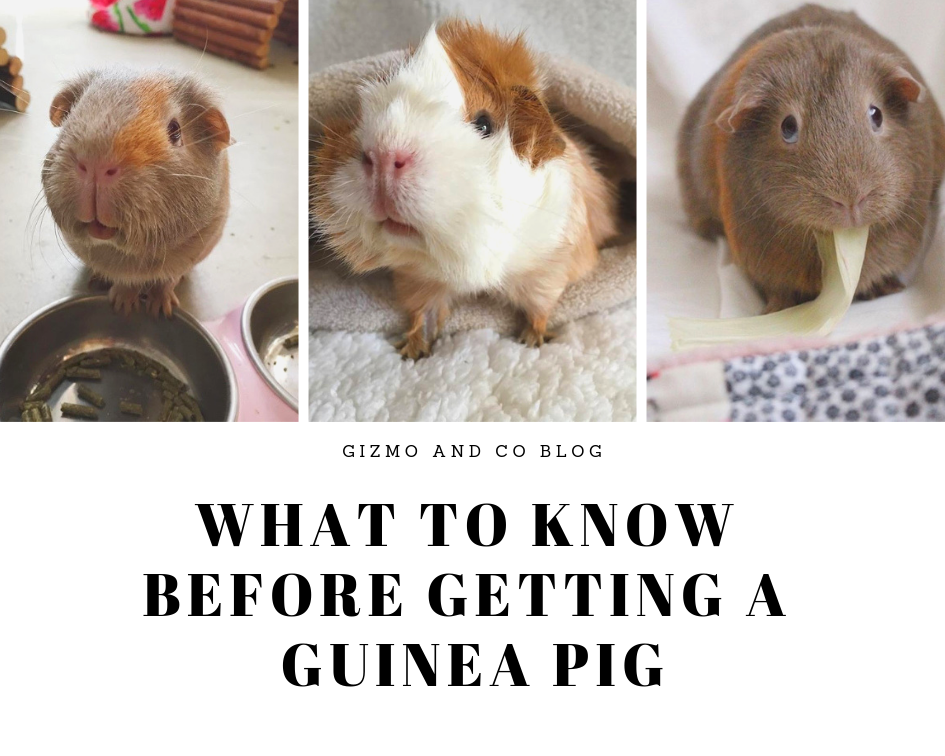Before buying a guinea pig, consider factors such as space requirements, time commitment, and financial responsibility. Owning a guinea pig requires a suitable living environment, daily interaction and care, and the financial means to provide for their needs.
Contents
Introduction To Guinea Pig Adoption
Before bringing a guinea pig into your home, it’s important to consider various factors to ensure that you can provide a happy and healthy environment for your new pet. Guinea pigs are adorable and sociable animals, but they require specific care and attention. Understanding the essentials of guinea pig adoption will help you make an informed decision and set the stage for a fulfilling companionship with your new furry friend.
Why Guinea Pigs Make Great Pets
Guinea pigs are ideal pets for families and individuals seeking a small, gentle, and low-maintenance companion. They are friendly, affectionate, and enjoy interacting with their owners. Additionally, their delightful squeaks and charming personalities make them a joy to have around. Guinea pigs are also relatively easy to care for, making them suitable for first-time pet owners.
Common Misconceptions
It’s essential to address common misconceptions about guinea pigs to ensure that potential adopters have accurate information. One prevalent misconception is that guinea pigs are solitary animals. In reality, they are highly social creatures and thrive in the company of other guinea pigs. Another misconception is that guinea pigs are low-maintenance pets. While they may be smaller than some pets, they still require a significant amount of care, including regular cage cleaning, proper nutrition, and social interaction.

Credit: ontariospca.ca
Assessing Your Lifestyle Compatibility
Time Commitment For Care
Guinea pigs require daily care, including feeding, cleaning, and social interaction. Allocate at least an hour each day for bonding with your guinea pig and tending to their needs. Consistency and routine are essential for their well-being, so ensure you can commit to this schedule before bringing a guinea pig into your home.
Space Considerations In Your Home
Guinea pigs need a spacious and well-ventilated living area. A minimum cage size of 7.5 square feet for one guinea pig is recommended, with additional space for each additional pig. Ensure the cage is placed in a quiet, draft-free area away from direct sunlight and other pets. Consider the available space in your home and whether you can dedicate a specific area for your guinea pig’s habitat.
Understanding Guinea Pig Needs
Dietary Requirements
Guinea pigs require a diet rich in hay, fresh vegetables, and vitamin C. Their digestive systems rely on a consistent intake of high-quality hay to stay healthy.
Social Interaction Essentials
Guinea pigs are sociable creatures that thrive on companionship. It’s essential to provide them with a suitable living environment that allows for social interaction with other guinea pigs.
:strip_icc()/about-guinea-pigs-1238899-hero-fd6b867b342e485796253c6c57b2d6c6.jpg)
Credit: www.thesprucepets.com
Choosing The Right Guinea Pig
Choosing the right guinea pig involves considering factors such as breed, age, and personality. It’s important to think about the amount of space and time you have to care for your new pet, as well as the financial commitment involved in providing food, bedding, and veterinary care.
Personality Traits
Guinea pigs have unique personalities.
Consider if you want an active or calm guinea pig.
Health And Breeding
Ensure the guinea pig is healthy before buying.
Check for any genetic health issues.
Opt for reputable breeders for healthy guinea pigs.
Initial And Ongoing Costs
Guinea pigs are popular pets known for their cute and cuddly appearance. However, before you decide to bring one home, it is important to consider the initial and ongoing costs associated with owning a guinea pig. These costs include setting up a habitat and veterinary care, among others.
Setting Up A Habitat
Guinea pigs require a safe and comfortable environment to live in. This includes a cage or enclosure that is large enough for them to move around freely and has enough space for food, water, and bedding. You also need to provide them with hiding places and toys to keep them entertained. The cost of setting up a habitat can vary depending on the size and type of enclosure you choose. Here are some of the things you need to consider:
| Item | Cost |
|---|---|
| Cage or enclosure | $40-$200 |
| Bedding material | $10-$20 per month |
| Water bottle or bowl | $5-$15 |
| Food bowl | $5-$10 |
| Hideouts and toys | $20-$50 |
Veterinary Care Budgeting
Guinea pigs need regular veterinary care to ensure they stay healthy. This includes annual check-ups and vaccinations, as well as emergency care if they become ill or injured. It is important to budget for these expenses when considering the cost of owning a guinea pig. Here are some of the costs associated with veterinary care:
- Annual check-up: $40-$60
- Vaccinations: $20-$30
- Emergency care: $100-$300
- Medications: varies depending on the condition
It is important to find a veterinarian who specializes in small animals, such as guinea pigs, to ensure your pet receives the best possible care.
Overall, owning a guinea pig can be a rewarding experience, but it is important to consider the costs associated with it. By budgeting for initial and ongoing expenses, you can ensure that your pet receives the best possible care.
Preparing Your Home
Before bringing home a guinea pig, it’s crucial to ensure your living space is safe and equipped with the necessary supplies. Creating a secure environment and having essential items ready are key steps to consider.
Safe Environment Creation
- Secure all electrical cords and cables.
- Remove any toxic plants from the guinea pig’s reach.
- Designate a quiet area away from loud noises.
- Provide hiding spots for privacy and security.
Essential Supplies Checklist
| Item | Quantity |
|---|---|
| Cage or hutch | 1 |
| Bedding (hay or paper-based) | 1 pack |
| Food bowl and water bottle | 1 each |
| Guinea pig pellets and hay | 2 weeks supply |
| Chew toys | 2-3 |
| Vegetables and fruits | Varied |
Finding A Reputable Source
Ensure you find a reputable source when considering buying a guinea pig. Look for trusted breeders or animal shelters with positive reviews and ethical practices to make an informed decision. Research their reputation and ensure the well-being of the animal.
When buying a guinea pig, finding a reputable source is crucial to ensure you are getting a healthy and well-cared for pet. There are two main options for buying a guinea pig: adoption centers and breeders. Each option has its pros and cons, and it’s important to consider them before making a decision. Additionally, there are red flags to watch out for when dealing with any source, which we will discuss later in this article.Adoption Centers Vs. Breeders
Adoption centers are a great option for those who want to give a home to a guinea pig in need. These centers often have guinea pigs of all ages and personalities, and they are typically already spayed or neutered. However, it’s important to note that adoption centers may not have as much information about the guinea pig’s history and health as a breeder would.On the other hand, buying from a breeder gives you the opportunity to choose a guinea pig with specific traits and characteristics. Breeders typically have more knowledge about their guinea pigs’ health and genetics, and they may provide ongoing support and guidance. However, buying from a breeder can be more expensive than adopting from a center.Red Flags To Watch Out For
Regardless of where you decide to buy your guinea pig, there are certain red flags you should watch out for. These include:- Dirty or overcrowded living conditions
- Guinea pigs that look sick or have discharge from their eyes or nose
- Breeders who don’t allow you to see the parents or the living conditions of the guinea pigs
- Breeders who don’t ask you questions about your experience and living situation
Long-term Commitment
Before purchasing a guinea pig, it’s essential to consider the long-term commitment involved. These pets can live for 5-7 years, requiring daily care, attention, and a stable living environment. Ensure you’re ready for the responsibility before bringing one home.
Guinea pigs are adorable and affectionate pets that can bring joy to your life. However, before bringing a guinea pig home, it’s essential to understand that they are a long-term commitment. These pets can live up to 8 years or more, and during this time, they need proper care and attention. Therefore, it’s crucial to consider the following factors before buying a guinea pig.Life Span Considerations
Guinea pigs have a relatively long lifespan compared to other small pets. On average, they can live between 5 to 8 years, and some can even live up to 10 years. Therefore, it’s essential to understand that they are a long-term commitment and require consistent care throughout their life. It’s also important to consider your lifestyle and future plans before adopting a guinea pig. If you’re planning to move or have a significant life change, it’s important to consider if you can continue to provide proper care for your pet.Future Planning
Before buying a guinea pig, it’s crucial to consider your future plans and how they may affect your pet. For example, if you’re planning to travel, you need to make sure that you have someone to take care of your guinea pig while you’re away. Additionally, if you’re planning to move, you need to consider if you can bring your pet with you or find a suitable home for them. It’s also important to consider the financial aspect of owning a guinea pig, such as vet bills and ongoing care costs.To ensure that you’re prepared for the long-term commitment of owning a guinea pig, it’s essential to research and educate yourself on their care requirements. This includes understanding their diet, housing needs, and socialization requirements. It’s also important to find a reputable breeder or rescue organization to adopt your pet from and ensure that they are healthy and well-cared for. By considering these factors, you can provide a loving and caring home for your guinea pig for many years to come.Final Considerations Before Purchase
Before bringing home a guinea pig, there are final considerations to keep in mind to ensure a smooth transition and proper care for your new furry friend.
Allergies And Family Members
Consider family allergies and the suitability of a guinea pig for all family members.
Support Network For Pet Care
Ensure you have a support network for pet care during vacations or emergencies.

Credit: www.gizmoandco.com
Frequently Asked Questions
What Are The Key Considerations Before Getting A Guinea Pig?
Before getting a guinea pig, consider their space requirements, dietary needs, and social nature. Research their lifespan and daily care routine to ensure a happy and healthy pet.
How To Create A Suitable Living Environment For A Guinea Pig?
Provide a spacious cage with bedding, hiding spots, and toys. Ensure proper ventilation, temperature, and natural light. Regularly clean the cage to maintain hygiene for your guinea pig’s well-being.
What Should I Feed My Guinea Pig For A Balanced Diet?
Offer a variety of fresh hay, vegetables, fruits, and pellets. Ensure a daily intake of Vitamin C for guinea pigs as they cannot produce it on their own. Avoid sugary or fatty treats.
How To Socialize And Bond With A Guinea Pig?
Spend quality time talking to, petting, and hand-feeding your guinea pig. Avoid sudden movements and loud noises. Provide opportunities for exercise and play to strengthen the bond with your pet.
Conclusion
Before bringing a guinea pig into your home, it is important to consider several factors. These include the necessary commitment of time and effort, the appropriate living environment, the cost of care, and the compatibility with your lifestyle. By carefully considering these aspects, you can ensure a positive and fulfilling experience as a guinea pig owner.
Remember, a happy and healthy guinea pig can bring joy to your life for many years to come.



